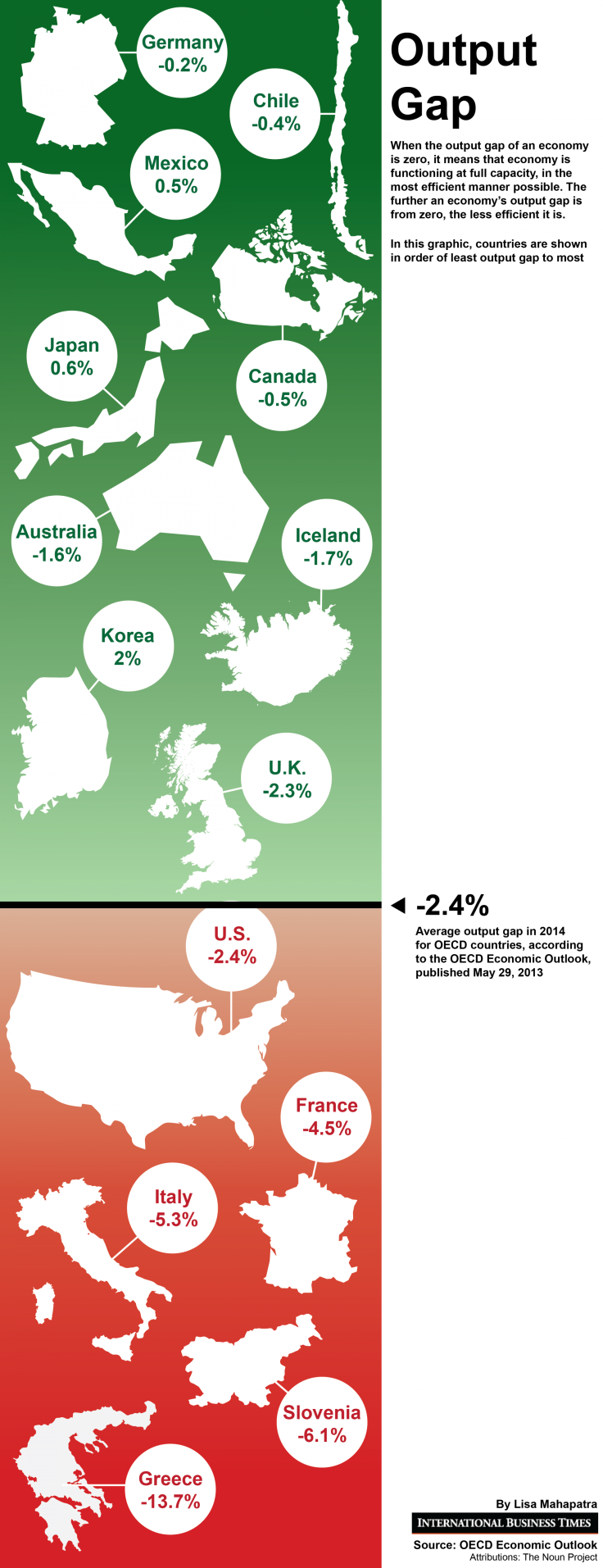GDP Gap: With Germany The Most Efficient Economy, How Will These Other OECD Economies Fare In 2014? [Infographic]
Here is a sampling of OECD projections on how the economies of member countries will do next year, as measured by output gap -- which is the difference between an economy’s actual GDP and its potential GDP -- according to the most recent OECD Economic Outlook, published May 29, 2013.
When the output gap of an economy is zero, it means that economy is functioning at full capacity, in the most efficient manner possible. The further an economy’s output gap is from zero, the less efficient it is.
If the output gap is a positive number, it means that economy is overextending its resources, which could cause deflation. A negative number means that economy’s actual output is less that its full-capacity output.
The U.S. economy’s output gap is currently -3.1 percent, according to projections from the OECD Economic Outlook, but is expected to shrink to -2.4 percent in 2014. Germany, one of the most efficient economies in the world, currently has an output gap of -0.8 percent, and this is expected to shrink to -0.2 percent in 2014. For the full list of OECD member countries, click here.

© Copyright IBTimes 2024. All rights reserved.





















